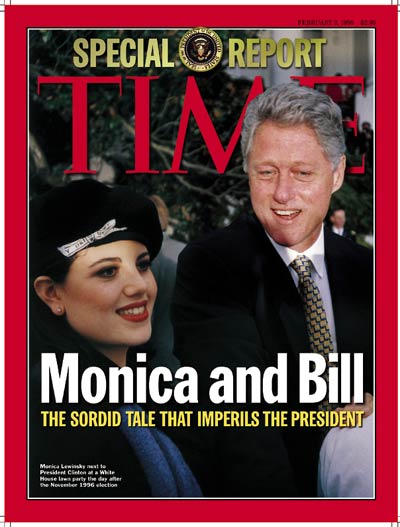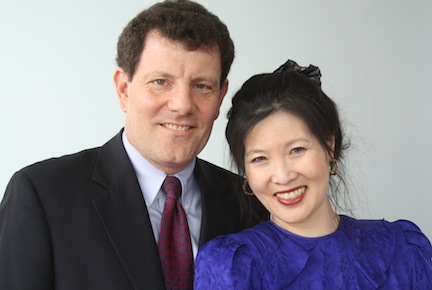Catherine Glass
Dr. Stiltner
April 17, 2012
Final Paper
Flirting Between a Rock and a Hard Place
Why do people cheat? It’s a
universal no-no, but still, it happens pretty frequently: Bill Clinton and Monica Lewinsky, John Edwards
and Rielle Hunter, Tiger Woods and…ten other women. Since infidelity has been
increasingly publicized, the public has become desensitized. It has become less scandalous and more
accepted. We need only think of Bill Clinton as the
poster boy for the concept that there is a public life after an
infidelity. Yet, as “People” magazine
publishes a new affair every week, at some level, we publicly proclaim the
notion that extramarital relationships are taboo.
 Evolutionary theorists suggest that men
and women’s sexual attitudes are a product of their ancestral past. In a 1998
study, researchers found that male reproductive success was based on spreading
genes to as many partners as possible. It was necessary to produce offspring –
the more sex, the more strong and burly male descendants would be available to
contribute to the tribe. On the opposite end of the spectrum, women wanted to
ensure the health and safety for their children. Female reproductive success
was based on finding a male partner that could provide resources for the family.
Has this tradition travelled with us all these years later? A man with wives
and girlfriends – a young woman with an eighty-five year old wealthy husband –
is all of this due to evolutionary drive?
Evolutionary theorists suggest that men
and women’s sexual attitudes are a product of their ancestral past. In a 1998
study, researchers found that male reproductive success was based on spreading
genes to as many partners as possible. It was necessary to produce offspring –
the more sex, the more strong and burly male descendants would be available to
contribute to the tribe. On the opposite end of the spectrum, women wanted to
ensure the health and safety for their children. Female reproductive success
was based on finding a male partner that could provide resources for the family.
Has this tradition travelled with us all these years later? A man with wives
and girlfriends – a young woman with an eighty-five year old wealthy husband –
is all of this due to evolutionary drive?
Many modern theorists don’t buy the evolutionary
philosophy. “A person's past sexual history,
an individual's mate value (attractiveness), the degree of opportunity (time
spent away from a spouse with other potential sexual partners), and a person's
willingness to take risks all play an important role in infidelity.” This explanation drills down to the individual
reasons why extramarital affairs occur and suggests a personal accountability factor
that is missing from the evolutionary theory.
It is also logically appealing. The formula is: opportunity + appetite for risk
+ minimum invested in the marital relationship (shared finances, children) = at
risk for marital affair.[BS1] Opportunity pertains to one’s physical
attractiveness, social skills, and financial independence. The risk-taking
component has to do with spouses who have a more adventurous nature. The
investment factor relates to how many shared priorities a married couple has
together. After reading all of the research and literature, this formula seems
to be the soundest explanation as to why someone would enter into an
extramarital affair. The common denominator underlying all of these variables
is the lack of reverence in a marriage. For me, respect between the spouses defines the level of risk and is the
thin line between a healthy and hopeless relationship.
Often this disrespect stems from one or
both spouses not having trust. This may be due to the marriage, or may be a
personal insecurity. Regardless, when there is a lack of trust, resentment
often surfaces (warranted or unwarranted) – this is when disrespect comes into
play. Instead of communicating with one’s partner, it is more common and
temporarily easier to turn against them. The Bible says, “There is no fear in love, but perfect love casts out fear.
For fear has to do with punishment, and whoever fears has not been perfected in
love.” (John 4:18). In Catholic tradition fear, insecurity, and mistrust cannot
exist in a marriage. So, since Catholic tradition weighs so heavily on marital
“perfectness,” we would think that a faithful person would be less likely to
cheat. Unsurprisingly, there is much research both supporting and resisting
this notion.
A
psychology study done in 2006 claimed that people who attend religious services
on a frequent basis are both more likely to disapprove of extramarital affairs
and less likely to engage in them (Woodruff).
So, faith and faithfulness go together. Also, separate research found that
religious students were unlikely to engage in an affair. Faith was the main
component for these students lack of engagement (Benson & Donahue). The God factor injects a moral component that
is not necessarily linked to respect for, or feeling for, the spouse or
significant other. It is more concerned
with the actor’s own concern for his/her everlasting well being. “Thou shalt
not commit adultery,” the Commandments command.
 Thomas Rees, an Op-Ed columnist for
Free Inquiry, writes that regular church goers are less likely to cheat because
they tend to be more family oriented. People who attend a religious service
weekly do so, generally, in company with their family. Rees “suspects that
there would be similar findings for those people who commit to secular
activities.” The reason for fidelity, he argues, is the
commitment to the sanctity of the family as evidenced by support for family
activities. Indeed, people who feel they
are “close to God but don’t go to a religious service” are 25% more likely to cheat. According to this
theory, religious faith doesn’t reduce infidelity, family centered life does. (Thomas Rees
Blog)
Thomas Rees, an Op-Ed columnist for
Free Inquiry, writes that regular church goers are less likely to cheat because
they tend to be more family oriented. People who attend a religious service
weekly do so, generally, in company with their family. Rees “suspects that
there would be similar findings for those people who commit to secular
activities.” The reason for fidelity, he argues, is the
commitment to the sanctity of the family as evidenced by support for family
activities. Indeed, people who feel they
are “close to God but don’t go to a religious service” are 25% more likely to cheat. According to this
theory, religious faith doesn’t reduce infidelity, family centered life does. (Thomas Rees
Blog)
Rees, however, minimizes the
significant impact God and religion has on many people’s lives and the moral
compass both can provide. When the family is involved together in a social
activity, whether secular or spiritual, powerful bonds are created and
reinforced. An affair that could cause
ruination of the family unit may simply offer a very unattractive risk/reward
ration and itself act as a deterrent.
Otherwise stated, why would they cheat and ruin that? Still, Church, or any religious service for
that matter, is not just a social gathering. It serves up lessons in morality,
goodness, and fulfillment – all examples of pro-family behavior. Family bowling
night is simply not the same thing as Sunday mass. In his blog Epiphenom, even Rees admits that the
research may be faulty. The study surveyed
“self-reported infidelity,
something that people are likely to under-report, and attendance, which is
often over-reported. And it's a cross-sectional analysis, like most of these
sorts of things, so cause-and-effect are open to question.” A cross sectional analysis study’s a large ranging sample
(i.e. different race, socioeconomic status etc.) at one time. Participants have
different backgrounds influencing how they answer the survey. As for the flaws
of self- reported studies, people tend to tone down their experience with cheating,
and exaggerate how often they attend service. The reality is that people who
have strong family bonds (however formed), and people who have deeply felt
religious beliefs against extramarital affairs, are less likely to have those
affairs because of the family bonds and the religious beliefs,
respectively. The data was issued in
2008. It would be interesting to compare
now, many highly public affairs later, to see if attitudes have changed.
It has become pretty clear that over
the years, our country has become a more secular society. And, in this secular
society, infidelity is still seen as morally prohibited. So, it seems to me
that while Church is an excellent representation of pro-family behavior, it
isn’t necessarily crucial. I grew up attending Church, and personally want to
take my children to Church. Service teaches us how to live a just and
fulfilling life. Although sometimes too rigid, the Catholic Church has strong
tradition that most people would seem to agree with – especially when it comes
to extramarital affairs. However, my children can still gain a moral compass
without going to mass. A religious service won’t transform a married couple
into faithful and happy partners – if they have problems in their relationship,
faith won’t work miracles. Whether it’s secular or spiritual, pro-family
behavior is definitely the staple for a happier marriage. As long as a family
is bonding and connecting with each other, the likelihood of an affair will be
far less.
But, after the infidelity occurs and
there’s no going back, what are society’s thoughts and attitudes? Once an
affair happens, especially in the public eye, it is more easily forgiven than
we would think. Although we see affairs as taboo, we still tend to get away
with having them. That is due to an ethic of self-fulfillment. Traditional concepts of right and wrong have been replaced by
norms of “harmful” or “harmless” (Yankelovich, 1981a, p. 46). If
one’s affair is damaging career or reputation wise if not forgiven, even if
they are “wrong” from the perspective of traditional morality, they no longer
meet much opposition. If a man cheats on his wife but lives in a hierarchal
community, he’s typically forgiven. It’s better to have a cheating husband than
to compromise status, right? If a movie star has an affair, it’s typically
covered up and the actor doesn’t loose a dime. If you’re powerful enough, your
affair is seen as more “harmful” if
not forgiven – it is more “harmless” to
allow the infidelity.
Beginning most famously with Bill Clinton’s
affair with Monica Lewinsky, there has been a sea change in the public
perception of extramarital affairs.
Today, it is not a career killer. When caught, a heartfelt apology, a steady
wife who stands by the adulterer’s side forgiving him, results in the
adulterer’s career clicking on all cylinders in no time. So, Governor Spitzer can have his career
spectacularly flame out with a prostitute, and still wind up a successful TV
personality and commentator – Bill Clinton can become a Nobel Prize nominee – and
the golf world can breathlessly wait for Tiger’s anticipated comeback. While there
are environments in which one is more likely to have an affair, and religion
and morality definitely come into play, forgiveness of infidelity has undoubtedly
skyrocketed. We live in a secular world where less people engage in family centered activity and sex tapes make you famous.
Work Cited
Atkins, D., & Kessel, D. (2008).
Religiousness and Infidelity: Attendance, but not Faith and Prayer, Predict
Marital Fidelity Journal
of Marriage and Family, 70 (2),
407-418
PL Benson, MJ Donahue -
Journal of Adolescent Research, 1989
Rees, Thomas. "Religion and Marital Infidelity.
“Epiphenom. PaperBlog, 17 Apr 2012. Web. 17 Apr. 2012.
<http://epiphenom.fieldofscience.com/search?
Woodruff, M. (2006). Marital infidelity and
religion; unfaithful individuals and their religiosity. Retrieved from
Yankelovich,
D. (1981b). New rules: Searching for self-fulfillment in a world turned
upside down. New York: Random House

